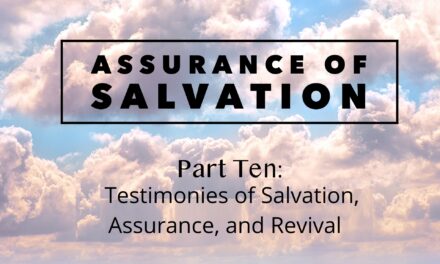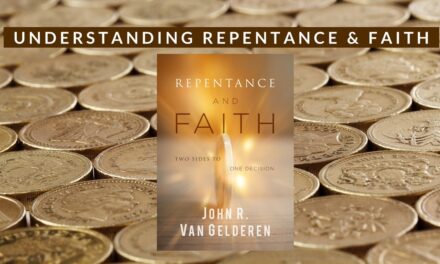A preacher friend operated under the philosophy if you get sick, just tough it out until you get better. He called once and told me he had indeed gotten sick, and though he was toughing it out, he had not gotten better. Finally, he visited a doctor. Upon examination, the doctor diagnosed him as having a case of the flu—and told him to just tough it out until he got better! With this embarrassing prognosis, he went home . . . but over time he failed to get better. In fact, he became so sick he felt compelled to return to the doctor. Given his personal philosophy and the embarrassment tied to the previous visit, he must have been extremely sick. A second examination showed the first diagnosis to be in error. It was not the flu. His intestines had become twisted to the point of causing a complete blockage. That’s a problem.
If you aren’t diagnosed accurately, you will not be given the correct cure. The same is true spiritually.
Jesus said, “I am come that they might have life, and that they might have it more abundantly” (John 10:10). With this, the Savior states one matter explicitly, implies a second one, and closes with explicit mention of a third. Jesus came that people might have life. That’s salvation. What’s implied is that they would know they have life. That’s assurance. Jesus also came that people might live that life abundantly. That’s revival.
Salvation (having life), assurance (knowing it), and revival (living it). Since these three distinctions affect eternal destinies and effective living, we must discern the differences between them. This will allow us to correctly diagnose our own need and apply a proper cure. It also provides us with a precision necessary for helping others.
Once, while discussing these issues with another preacher, I asked him what he would do if a young person said he was saved but wasn’t living right? The preacher replied, “I would take him to First John and look at the evidences of salvation.” In response, I said, “I would take him to the gospel and see whether or not he is saved.”
The evidences of First John are evidences of abiding in Christ, not automatic evidences of salvation. (See also this April 2018 article discussing the evidences.) Abiding is a picturesque term for faith. Faith in the indwelling Christ accesses the fruit (evidences) of the Spirit. But abiding is not automatic. It’s the life of faith.
In the next article we will begin at the right starting point—the gospel.

John Van Gelderen
Post Author












I am enjoying the blogs on assurance. I have struggled with this for years and just recently gotten the victory. These blogs are reinforcing things God is showing me. I am also trying to help another lady with this problem and hope these will be a blessing for her as well. Thank you for them and the clear way you explain things. Blessed!
Praise the Lord! It’s wonderful to be on the position of faith.